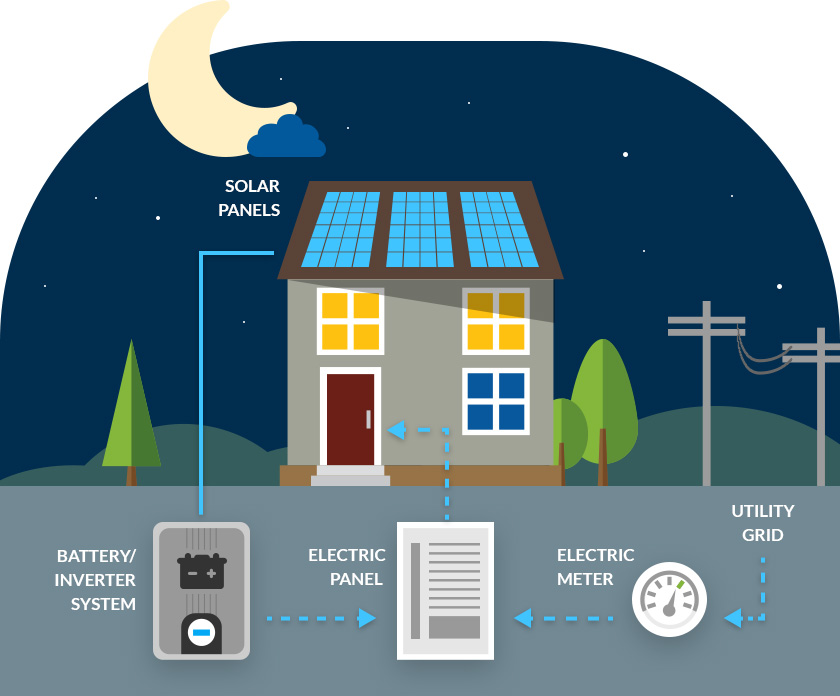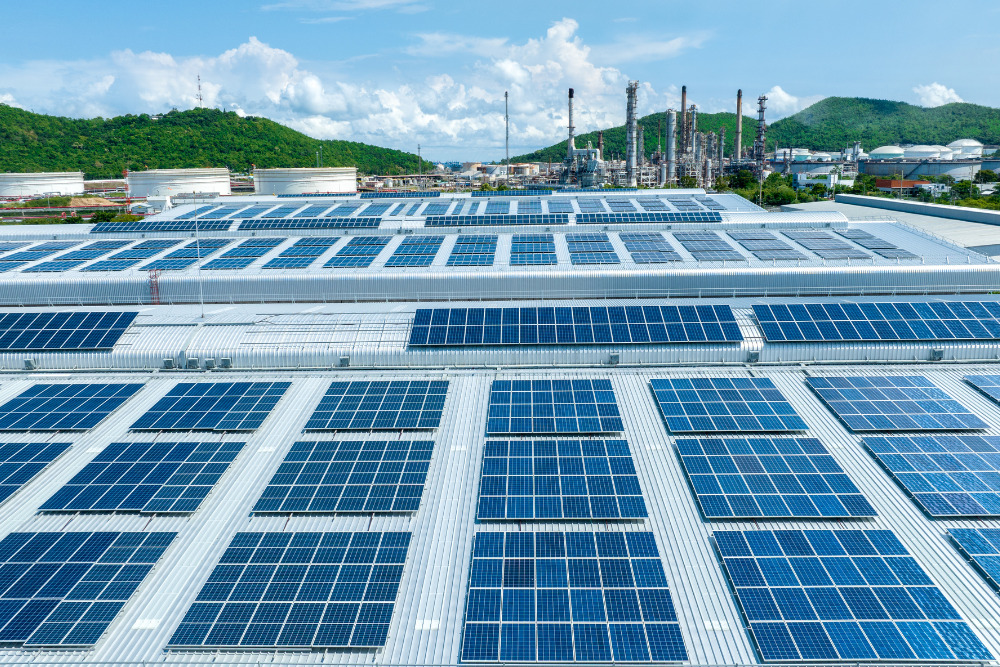Solar Companies In Virginia Fundamentals Explained
Solar Companies In Virginia Fundamentals Explained
Blog Article
Virginia Solar Power Installers: Lumina Solar Focuses On Supplying Advanced Photovoltaic Solutions For Homes And Services
History and Establishing
Have you ever questioned how a photovoltaic panel business springs from a mere trigger of inspiration into a powerhouse of renewable energy? It typically begins with a vision-- one fueled by a blend of development, decision, and a pinch of serendipity. The journey of lots of solar companies mirrors the development of the innovation itself: from bulky, ineffective panels to smooth, high-efficiency marvels utilizing the sun's bounty.
The Early Days
In the late 20th century, when solar power was still a specific niche idea, leaders planted seeds for what would become an international motion. Picture a small workshop filled with curious engineers, tirelessly try out photovoltaic cells. Their passion was palpable, frequently driven by a desire to fight environment change and reduce reliance on nonrenewable fuel sources.
One such anecdote has to do with a creator who, influenced by a camping journey, realized that even in remote areas, the sun could power vital devices. This easy observation triggered a company's objective to democratize access to tidy energy.
Establishing Principles

- Development: Constantly pushing the limits of solar technology to improve efficiency and toughness.
- Sustainability: Dedicating to environment-friendly production and minimizing carbon footprints.
- Accessibility: Making eco-friendly energy services inexpensive and practical for everyday users.
Milestones in Development
| Year | Key Event |
|---|---|
| 1985 | Company established in a little garage, focusing on research and development. |
| 1995 | Commercial solar panel item released, gaining regional attention. |
| 2005 | Broadened to global markets, welcoming global renewable resource goals. |
| 2015 | Presented cutting-edge solar panel technology with improved energy conversion. |
Isn't it remarkable how these incremental actions, often overlooked, form the energy landscape today? The photovoltaic panel company story is not just about innovation; it's about a ruthless mission for a brighter, cleaner future.

Innovations in Solar Panel Technologies
Ever seen how some solar panels shine brighter and last longer? It's not magic; it's the science of photovoltaic effectiveness. Modern photovoltaic panel business invest heavily in innovations like bifacial cells, which capture sunlight from both sides, increasing energy harvest without click here broadening roofing system area. Have you ever questioned why some panels perform better on cloudy days? That is because of advances in thin-film solar technology, which prospers under diffused light conditions.
Product Variations Customized to Distinct Requirements
One size never ever fits all. Solar panel companies now provide:
- Monocrystalline panels for optimum performance and streamlined aesthetics, suitable for space-constrained rooftops.
- Polycrystalline panels, which use an affordable option without compromising excessive output.
- Building-integrated photovoltaics (BIPV), merging solar tech seamlessly into architectural components like windows and exteriors.
Choosing the best item isn't practically upfront cost; it's about matching your environment, energy goals, and long-term cost savings. Homes shaded by trees require panels that excel in low-light circumstances, something lots of neglect till energy costs climb up all of a sudden.
Technical Tips for Optimum Choice
- Assess the temperature level coefficient-- lower values suggest panels lose less efficiency on hot days.
- Try to find panels with boosted anti-reflective finishes to make the most of light absorption.
- Think about the panel's warranty not just for defects, but for ensured power output over years.
- Do not undervalue the significance of the inverter innovation matched with the panels; it can make or break your system's efficiency.
Beyond Panels: Emerging Patterns
Envision solar panels that change their angle automatically to go after the sun-- tracking systems are ending up being more accessible, increasing yield significantly. Or solar tiles that mix invisibly into your roofline, transforming your home into a silent, self-sufficient power generator. These developments are improving what a photovoltaic panel business provides-- not just items, but integrated energy services.
Market Existence and Global Operations
Ever question why some solar panel companies seem to grow up in every corner of the globe while others hardly make a ripple? The distinction lies not just in innovation but in mastering the art of navigating varied markets. Expanding globally is like planting seeds in different environments-- you must comprehend each environment's distinct conditions to grow.
Take, for instance, the elaborate dance of logistics and supply chain management. Delivering panels halfway across the world isn't just about range; it's about timing, custom-mades, tariffs, and adjusting to regional demand variations. A company with robust global operations expects these variables, guaranteeing panels get here on schedule without pumping up expenses. This insight is no small task and often separates market leaders from fans.
Secret Methods for Expanding Market Presence
- Localized production: Developing production centers near target audience minimizes shipping hold-ups and import intricacies.
- Strategic partnerships: Collaborating with local companies accelerates market penetration and builds trust.
- Adaptive product design: Customizing solar panel tech to weather, sun intensity, and infrastructure nuances enhances performance and acceptance.
What about the human element? Photovoltaic panel companies running internationally should reconcile cultural differences and regulatory nuances without losing sight of their core mission. What works in a sun-drenched desert might fail in a humid seaside area. Sometimes, the most ingenious service is merely listening-- taking in regional insights to fine-tune technology and method.
Experts typically advise a phased rollout instead of a shotgun growth. Why run the risk of overextension when measured growth constructs sustainable momentum? Scaling carefully means balancing ambition with functional resilience - Solar Companies in Virginia. In the race for sustainable energy dominance, persistence can be as valuable as speed.
Environmental Impact and Sustainability Practices
When photovoltaic panels initially emerged, lots of presumed they carried zero ecological baggage. Nevertheless, the truth is more nuanced. The production of solar batteries involves unusual earth metals and energy-intensive processes, which can leave a large carbon footprint before the panels even reach roofs. Yet, the real ecological cost depends heavily on the sustainability practices used by the solar panel business throughout the lifecycle of their products.
How frequently do we pause to consider what occurs to photovoltaic panels at the end of their helpful life? Unlike batteries or electronic devices, solar panels can last 25-30 years, but disposal and recycling paths remain underdeveloped in numerous areas. A company dedicated to lowering environmental damage will have a robust prepare for recycling photovoltaic products, salvaging important silicon, glass, and metals to avoid landfill build-up.
Secret Sustainability Strategies
- Utilizing low-impact manufacturing methods that lessen water and energy intake.
- Carrying out closed-loop systems to recycle production waste back into brand-new panels.
- Taking part in transparent supply chain audits to guarantee ethical sourcing of raw products.
- Creating panels for much easier disassembly to assist future recycling efforts.
It deserves keeping in mind that some solar companies have pioneered innovative methods, such as incorporating naturally degradable components or utilizing less hazardous chemicals during fabrication. This not just decreases environmental pressure but likewise sets a precedent for the market. The question remains: can the solar market really pivot towards a circular economy model without sacrificing performance or cost?
Specialist Tips for Evaluating Sustainability
- Ask about the business's commitment to carbon-neutral production and whether they balance out emissions.
- Investigate if they partner with certified recycling facilities devoted to solar panel waste.
- Try to find transparency reports detailing environmental effects and sustainability objectives.
- Consider the durability and service warranty of panels as an indirect procedure of resource efficiency.
In the end, selecting solar energy should suggest more than just slashing electrical energy costs; it has to do with supporting a future where energy is collected properly and waste is attentively managed. Solar panel companies that embrace this philosophy not just illuminate homes however also cast a brighter light on sustainable development.
Report this page